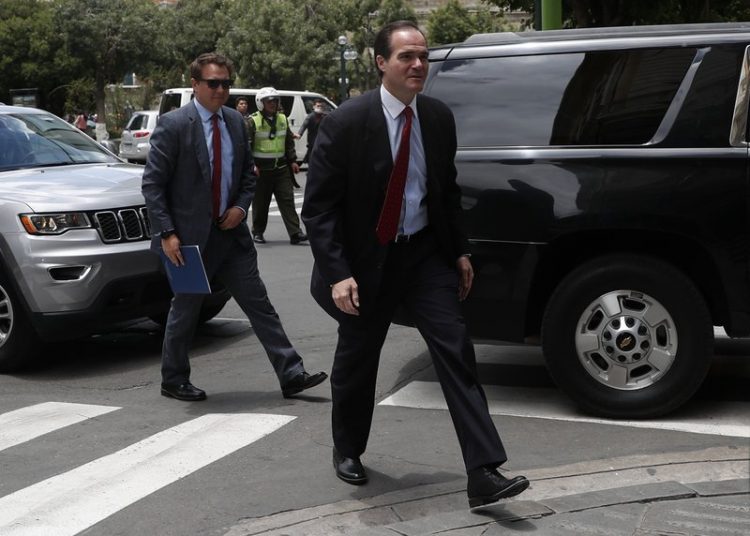MIAMI— The cyberattack crested just as finance officials from across Latin America were descending on Washington to commemorate the 60th anniversary of the Inter-American Development Bank, (AP) reported.
On Sept. 24, 2019, requests from more than 15,000 internet addresses throughout China flooded the bank’s website, knocking part of it intermittently offline. To unclog the network, the bank took the drastic step of blocking all traffic from China.
But the attackers persisted, and as officials gathered for a day of conferences with athletes, academics and celebrity chefs the bombardment intensified.
Details of the attack, which has not been previously reported, are contained in an IDB internal document reviewed by The Associated Press.
News of the attack is surfacing just as the bank’s new president, Mauricio Claver-Carone, seeks to leverage his hawkish views on China from his time in the Trump administration to outmaneuver those in Washington and beyond still fuming over his politically charged election last year.
Claver-Carone, the former National Security Council’s senior director for Western Hemisphere affairs, chaired last week in Colombia his first annual meeting of the IDB since he was elected last fall over the objections of Democrats and some regional governments who complained he was breaking the longstanding tradition of a Latin American being at the helm.
A geopolitical ideologue, Claver-Carone seems in no rush to abandon his disdain for Beijing’s growing influence in Washington’s backyard. In sharp contrast to his predecessor, Luis Alberto Moreno of Colombia, who eagerly promoted Chinese investment in the region, Claver-Carone recently floated the possibility of inviting Taiwan, the island democracy claimed by the communist Beijing government as part of its territory.
In curtailing China’s influence, Claver-Carone is looking to curry favor with Democrats who question his leadership but share his mistrust of Beijing. If he succeeds, they can help him deliver on what was the main pledge of his unorthodox candidacy: U.S. support for a capital increase so the bank can help the region dig out from a pandemic-induced recession that’s the worst in more than a century.
There are early signs he may be making some headway. This month, a bipartisan group of five lawmakers led by Sen. Bob Menendez, head of the Senate Foreign Relations Committee, proposed legislation authorizing an $80 billion capital increase that would boost lending at the Washington-based bank by 60%.






Discussion about this post